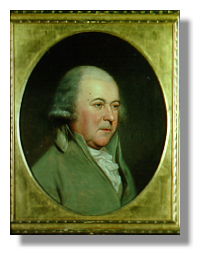|

In Bob Jones University v. United States (461 U.S. 574), the U.S. Supreme Court noted the following about the government’s intended purpose for the 501c3:
- The Court asserts that an exempt organization must “demonstrably serve and be in harmony with the public interest,” must have a purpose that comports with “the common community conscience,” and must not act in a manner “affirmatively at odds with [the] declared position of the whole Government.” Taken together, these passages suggest that the primary function of a tax-exempt organization is to act on behalf of the Government in carrying out governmentally approved policies.
Government Hushmoney
IRS Code § 501c3 reads as follows:
- Sec. 501. Exemption from tax on corporations, certain trusts, etc.
- (c) List of exempt organizations —
- (3) Corporations, and any community chest, fund, or foundation, organized and operated exclusively for religious, charitable, scientific, testing for public safety, literary, or educational purposes, or to foster national or international amateur sports competition (but only if no part of its activities involve the provision of athletic facilities or equipment), or for the prevention of cruelty to children or animals, no part of the net earnings of which inures to the benefit of any private shareholder or individual, no substantial part of the activities of which is carrying on propaganda, or otherwise attempting, to influence legislation, (except as otherwise provided in subsection (h)), and which does not participate in, or intervene in (including the publishing or distributing of statements), any political campaign on behalf of (or in opposition to) any candidate for public office.
While it may be appropriate for many non-profit organizations to waive their right to intervene in political campaigns, or to influence legislation, is this the right thing for a church to do?
Waiving such rights is to waive one’s freedom of speech. Waiving one’s right to influence legislation is especially problematic. The inevitable result has been that the church has abandoned its responsibility to influence their elected representatives to craft legislation that is biblical and that comports with the Constitution. The unchurched, and even those who are openly hostile to the church, have taken over that influence and are now seeing to it that their legislators craft statutes which are unbiblical, immoral, and unconstitutional.
One need not look far to see that the church’s acceptance of the 501c3, and its significant restrictions, has had devastating consequences to not only the church, but to the entire nation.
When a church accepts the 501c3 status, that church:
- Waives its freedom of speech.
- Waives its freedom of religion.
- Waives its right to influence legislators and the legislation they craft.
- Waives its constitutionally guaranteed rights.
- Is no longer free to speak to the vital issues of the day.
- Becomes controlled by a spirit of fear that if it doesn’t toe the line with the IRS it will lose its tax-exempt status.
- Becomes a State-Church.
The church in America today is, by and large, not speaking to the vital issues of the day. The church has been effectively silenced. There has been a chilling effect upon the church’s freedom of speech for fear of IRS retribution should the church get out of line. The inevitable result is a moral downward spiral in the culture as the church stands mute.
This did not happen by accident, but by design, and it is something of relatively recent design. Churches were added to IRS Code § 501c3 in 1954. All one need do is analyze who is responsible for sponsoring the congressional bill to include churches in § 501c3 and it should become apparent that his agenda was not to empower the church, but to silence the church (hint: the sponsor was a Senator from Texas who later became President).
“The church is the moral compass of society.”
John Adams stated while he was our President, “The church is the moral compass of society.” But in order to remain a true and faithful compass, the church must remain separate and independent of the influences of that society, particularly its civil government. It must be a “free-church.” Should the church become subordinate, or in any way controlled or co-opted by the civil government (a “State-Church” system), it can no longer effectively serve as that society’s moral compass. Unless it is respected, no one will listen to what it has to say.
Indeed, few citizens in any society, at any time in history, in any nation, have ever had any genuine respect for any State-Church system (nor should they). State-Church systems are inevitably compromised and governed by pragmatism, rather than genuine Christian faithfulness. It should surprise no one that the 501c3 church in America has lost its prophetic voice, lost the respect it once held, and is no longer “the moral compass of society.”
|

